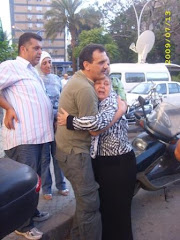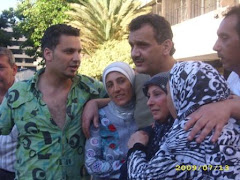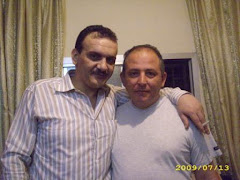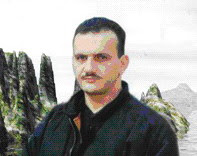dimanche 3 mai 2009
vendredi 1 mai 2009
The Lebanese Justice does not respect Lebanon’s commitments to the United Nations
The Lebanese Center for Human Rights welcomes with satisfaction the decision of the Special Tribunal for Lebanon to liberate the generals Ali El Haj, Jamil Al Sayed, Raymond Azar et Moustapha Hamdane who were arbitrarily detained, without any charge held against them nor judgment for the last three and a half years.
This decision is in compliance with the opinion 37/2007 of the United Nations Working Group on Arbitrary Detention.
The CLDH considers that this decision should have been made a long time ago by the Lebanese Justice itself, which demonstrated once again its lack of independence and impartiality in this affair.
In addition, the CLDH points out that several very important opinions from the United Nations Working Group on Arbitrary Detention were not taken into account by the Lebanese Justice, notably opinions 17/2006 concerning Mr. Nehmeh Naïm el Haj and 10/2007 concerning the case of Mr. Youssef Mahmoud Chaabane.
Nehmeh el Haj, condemned to death and detained in Roumieh Central Prison, was arrested in 1998 by the Syrian intelligence services and interrogated under torture at Anjar Detention Center, where he was forced to sign confessions. Transferred to the Lebanese justice system, he did not benefit from the assistance of a lawyer during his hearings with the Examining Magistrate. In this affair, the United Nations Working Group on Arbitrary Detention considered that “when someone is accused of an offence punishable by death, the presence of a lawyer is (…) an absolute necessity for the sake of justice.” The Working Group considered that the detention of Nehmeh el Haj is arbitrary and indicated that “the most appropriate remedy would be to obtain his exemption from capital punishment.”
The Lebanese Justice did not take into account this recommendation and confirmed the death sentence of Mr. el Haj in the Court of Appeals on February 12, 2009.
Youssef Mahmoud Chaabane, condemned to life imprisonment and detained in Jbeil prison, was arrested in 1994 by Syrian intelligence services and interrogated under torture at the Beau Rivage Detention Center, where he and several other individuals were forced to sign confessions. Transferred to the Lebanese Justice system, he was condemned to life imprisonment solely on the basis of these confessions. In Jordan, two other individuals were arrested for the same crime, condemned to death and executed. Their depositions clear Youssef Chaabane from having participated in this crime. The Working group considers in its opinions that “to be sentenced to capital punishment (even if commuted to life imprisonment) when the Government has not provided evidence that the individual had the ability to have his guilty finding and conviction examined by a higher jurisdiction, is itself a very egregious breach of the standards of a fair trial.” The detention of Mr. Chaabane is arbitrary and the “Working Group, having rendered this opinion, requests the Government to take the necessary steps to remedy the situation of Mr. Chaabane.”
The Lebanese Justice rejected the demand to review Youssef Chaabane’s trial on February 2, 2008.
The CLDH urges the Lebanese authorities to respect Lebanon’s international commitments, in particular the International Covenant on Civil and Political Rights, which establishes the standards of a fair trial, notably by remedying the arbitrary detentions of Messrs El Haj and Chaabane. The CLDH points out that according to the country’s constitution, Lebanon’s international agreements are superior to its internal jurisdiction.
Beirut, April 30, 2009.












